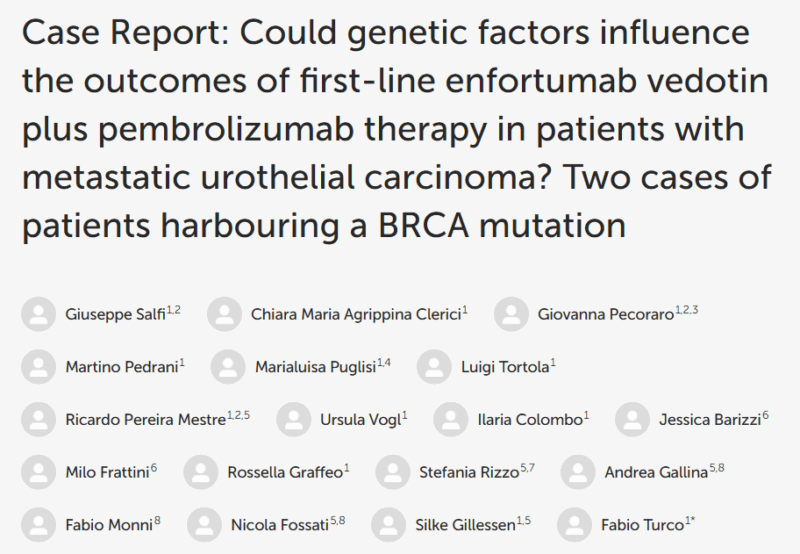Giuseppe Salfi, Medical Oncology Fellow at Ente Ospedaliero Cantonale, shared a post on LinkedIn about a paper he co-authored with colleagues published in Frontiers in Oncology:
“Enfortumab vedotin plus pembrolizumab (EV-P) has recently become the standard first-line treatment for all eligible patients with advanced urothelial carcinoma. Meanwhile, BRCA mutations, found in approximately 5–10% of these tumors, are known to predict longer responses to platinum-based chemotherapy – previously the first-line option, now typically reserved for second-line treatment following EV-P progression.
In this hypothesis-generating case report, we present two patients with BRCA-mutated urothelial carcinoma who experienced rapid disease progression on first-line EV-P (within 6 months), followed by prolonged response and disease control with platinum-based chemotherapy.
We hope this report could stimulate further research into predictive biomarkers that may help optimize therapeutic strategies for selected patient subgroups.”
Title: Case Report: Could genetic factors influence the outcomes of first-line enfortumab vedotin plus pembrolizumab therapy in patients with metastatic urothelial carcinoma? Two cases of patients harbouring a BRCA mutation
Authors: Giuseppe Salfi, Chiara Maria Agrippina Clerici, Giovanna Pecoraro, Martino Pedrani, Marialuisa Puglisi, Luigi Tortola, Ricardo Pereira Mestre, Ursula Vogl, Ilaria Colombo, Jessica Barizzi, Milo Frattini, Rossella Graffeo, Stefania Rizzo, Andrea Gallina, Fabio Monni, Nicola Fossati, Silke Gillessen, and Fabio Turco
You can read the Full Article in Frontiers in Oncology.

More posts on Urothelial Carcinoma on OncoDaily.


